How Do You Use Neem Oil as a Pesticide: What Bugs Does Neem Oil Kill?
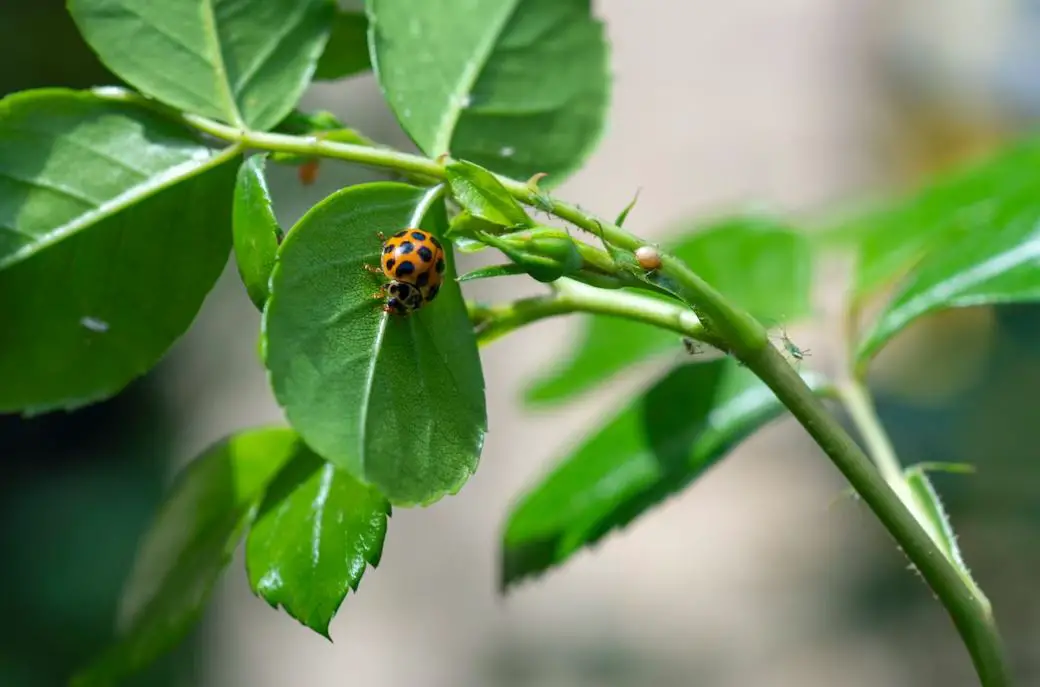
The Eco-Friendly Solution to Pest Problems
Are pesky garden pests wreaking havoc on your prized plants? If you’re searching for a safe and environmentally friendly way to combat these intruders, look no further than neem oil. In this comprehensive guide, we’ll explore how neem oil can be your secret weapon in the battle against garden pests.
Gardeners worldwide are turning to neem oil for its remarkable pest control properties. Unlike synthetic pesticides that can harm the environment, neem oil offers a natural and sustainable alternative.
In this article, we’ll unravel the mysteries of neem oil, from its origins to its effectiveness against a wide range of garden nuisances.
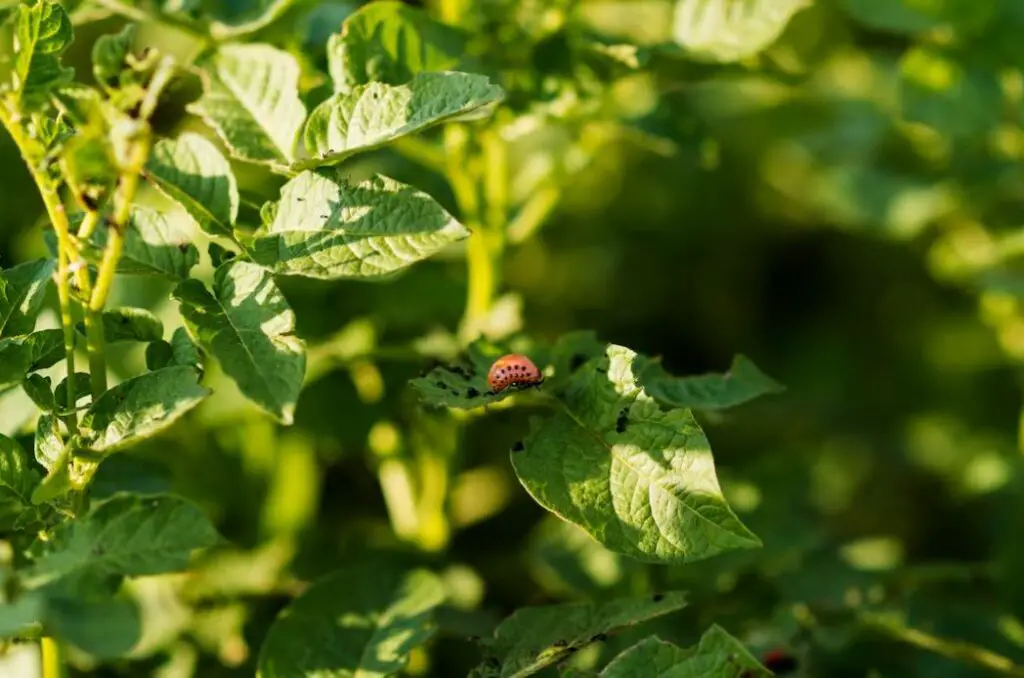
Table of Contents
What is Neem Oil? Exploring the Origins and Properties
To harness the power of neem oil, it’s essential to understand its origins and unique properties. Neem oil is derived from the seeds of the neem tree (Azadirachta indica), a native plant of the Indian subcontinent. For centuries, various cultures have recognized the neem tree’s medicinal and pesticidal properties.
Neem oil is rich in azadirachtin, a natural compound that disrupts the growth and development of many insects. It also contains essential fatty acids, antioxidants, and various other biologically active compounds that contribute to its effectiveness as a pesticide.
How Does Neem Oil Work as a Pesticide? Understanding the Mechanism Behind Effectiveness
Neem oil’s pest-fighting prowess lies in its complex chemical composition. It works as both a repellent and an insect growth regulator, making it a versatile solution for gardeners. When applied, neem oil affects pests in several ways:
- Repellent Action: Neem oil creates a barrier that discourages pests from feeding on plants. Insects find the smell and taste of neem oil unappealing, leading them to seek nourishment elsewhere.
- Disruption of Feeding and Reproduction: Azadirachtin, the primary active ingredient in neem oil, interferes with insect hormones, preventing them from molting, laying eggs, or feeding properly.
- Antifeedant Properties: Neem oil can make plants less palatable to insects, reducing the damage caused by their feeding.
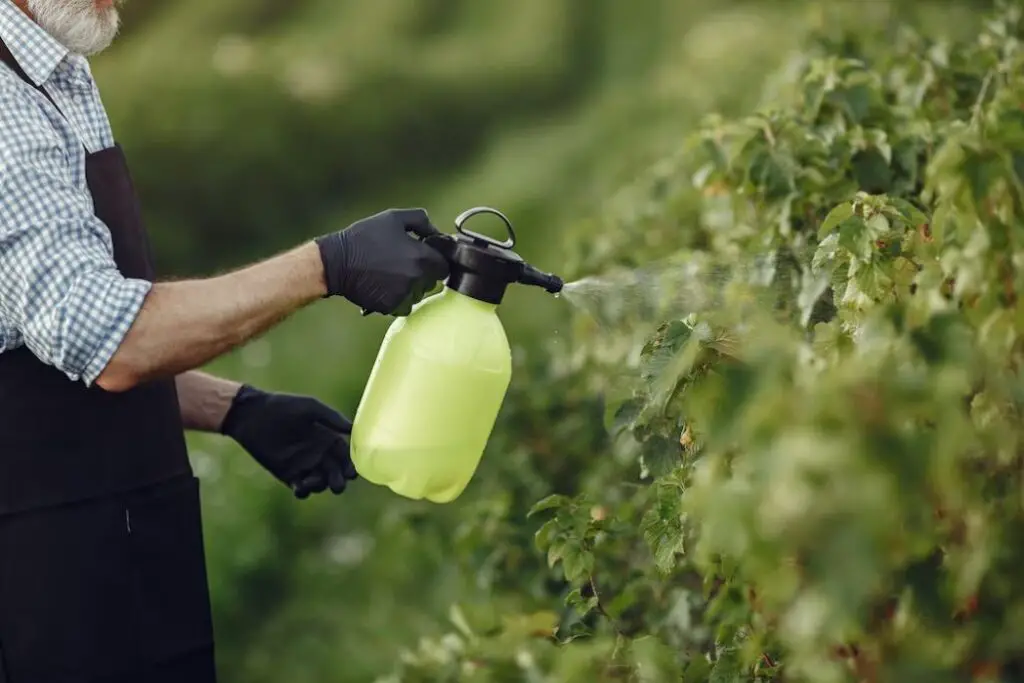
What Bugs Does Neem Oil Kill? A Detailed List of Pests and Insects
Neem oil boasts an impressive repertoire when it comes to pest control. Here’s a comprehensive list of common pests that neem oil can effectively combat:
- Aphids
- Whiteflies
- Spider mites
- Thrips
- Mealybugs
- Caterpillars
- Scale insects
- Japanese beetles
- Fungus gnats
- Leafhoppers
- Earwigs
- Nematodes
- Slugs and snails
- Ants (as a deterrent)
- Mosquitoes (as a repellent)
Common Garden Pests Controlled by Neem Oil:
Now, let’s delve deeper into some of the most notorious garden pests that neem oil can help you control:
Aphids
Aphids are tiny, sap-sucking insects that can quickly multiply and damage your plants. Neem oil disrupts their feeding and reproduction, reducing their populations.
Whiteflies
Whiteflies are notorious for their ability to spread plant diseases. Neem oil’s antifeedant properties deter whiteflies from infesting your garden.
Preparing and Mixing Neem Oil: A Step-by-Step Guide
Now that you’re acquainted with neem oil’s potential, it’s time to learn how to prepare and mix this natural pesticide. Follow these steps for an effective neem oil solution:
Ingredients and Equipment:
- Neem oil: Ensure you have pure, cold-pressed neem oil for the best results.
- Liquid soap: Use a mild liquid soap without additives.
- Water: You’ll need clean, preferably distilled water.
- Spray bottle: Choose a clean spray bottle for application.
- Measuring utensils: Use measuring spoons for accurate proportions.
Step 1: Measure the Neem Oil
Start by measuring the desired amount of neem oil. A common dilution ratio is 1 to 2 teaspoons of neem oil per gallon of water. Adjust the ratio based on the severity of your pest problem.
Step 2: Add Liquid Soap
To help the oil mix with water, add a few drops of mild liquid soap to the neem oil. The soap acts as an emulsifier, ensuring the oil disperses evenly in the water.
Step 3: Mix Thoroughly
Stir or shake the neem oil and soap mixture vigorously. Ensure that the oil and soap are fully combined. This step is crucial for a homogeneous solution.
Step 4: Add Water
Gradually add the measured amount of water to the neem oil and soap mixture. Continue stirring or shaking to ensure even dispersion.
Step 5: Transfer to a Spray Bottle
Pour the neem oil solution into a clean spray bottle. Make sure the spray bottle is free of any residues from previous solutions.
Step 6: Label the Bottle
Label the spray bottle clearly, indicating the contents and dilution ratio. This ensures you won’t confuse it with other solutions.
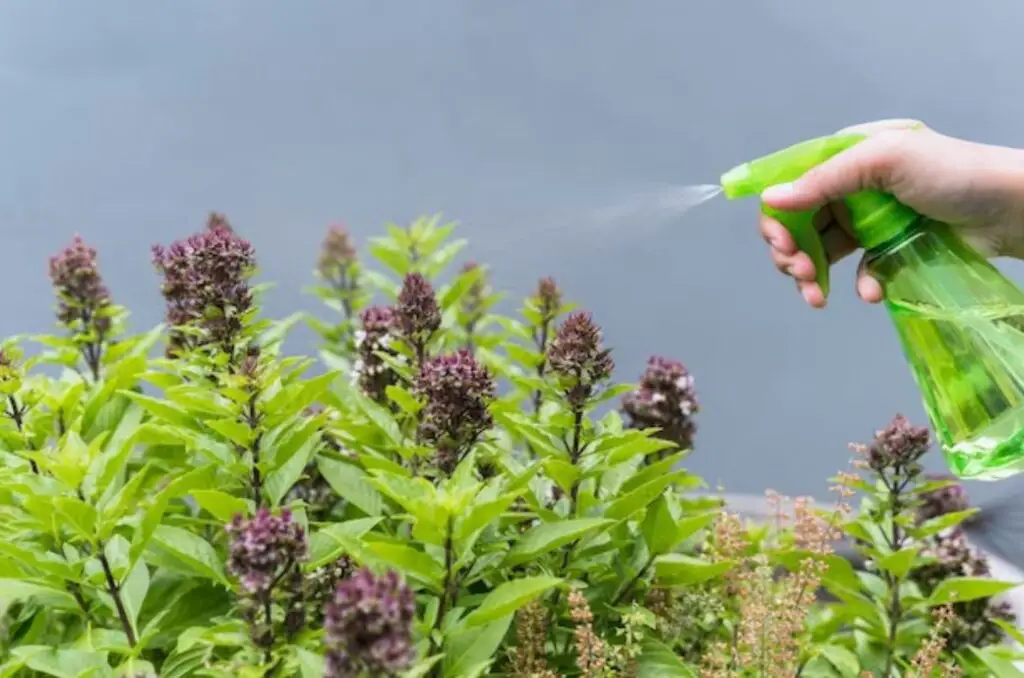
Application Methods: Different Ways to Apply Neem Oil for Maximum Pest Control
Now that you’ve prepared your neem oil pesticide, let’s explore the various methods of application. Choosing the right method depends on your garden’s needs and the types of pests you’re dealing with.
1. Foliar Spray
Foliar spraying involves applying the neem oil solution directly to the plant’s leaves. Use a handheld sprayer or a garden sprayer to cover both the upper and lower leaf surfaces. This method is effective against pests that feed on foliage, such as aphids and whiteflies.
2. Soil Drench
For pests that affect the roots or soil, like nematodes, a soil drench is the preferred method. Simply pour the neem oil solution at the base of the plant, allowing it to soak into the soil. This method helps control pests lurking below the surface.
3. Trunk and Stem Application
To target pests that climb up plant stems or infest tree trunks, apply the neem oil solution directly to these areas. This is particularly useful for deterring crawling insects like ants.
4. Preemptive Spray
Using neem oil as a preventive measure can stop pests before they become a problem. Apply it to your plants regularly, especially during the growing season, to create a protective barrier.
Safety Considerations: Tips for Safe Handling and Usage of Neem Oil
While neem oil is considered safe for most plants and beneficial insects, it’s essential to handle it with care to ensure your safety and effectiveness in pest control. Here are some safety considerations:
Protective Gear
When handling neem oil, wear protective clothing, including gloves, safety goggles, and a long-sleeved shirt. This minimizes skin contact and eye exposure.
Read Labels
Always read the label on the neem oil product you’re using. Different formulations may have specific instructions or precautions.
Avoid Direct Sunlight
Apply neem oil in the early morning or late afternoon to prevent leaf burn, as the oil can magnify the sun’s intensity.
Test on a Small Area
Before applying neem oil to your entire garden, test it on a small section of plants to ensure there are no adverse effects.
Storage
Store neem oil in a cool, dark place away from children and pets. Follow the manufacturer’s instructions for proper storage.
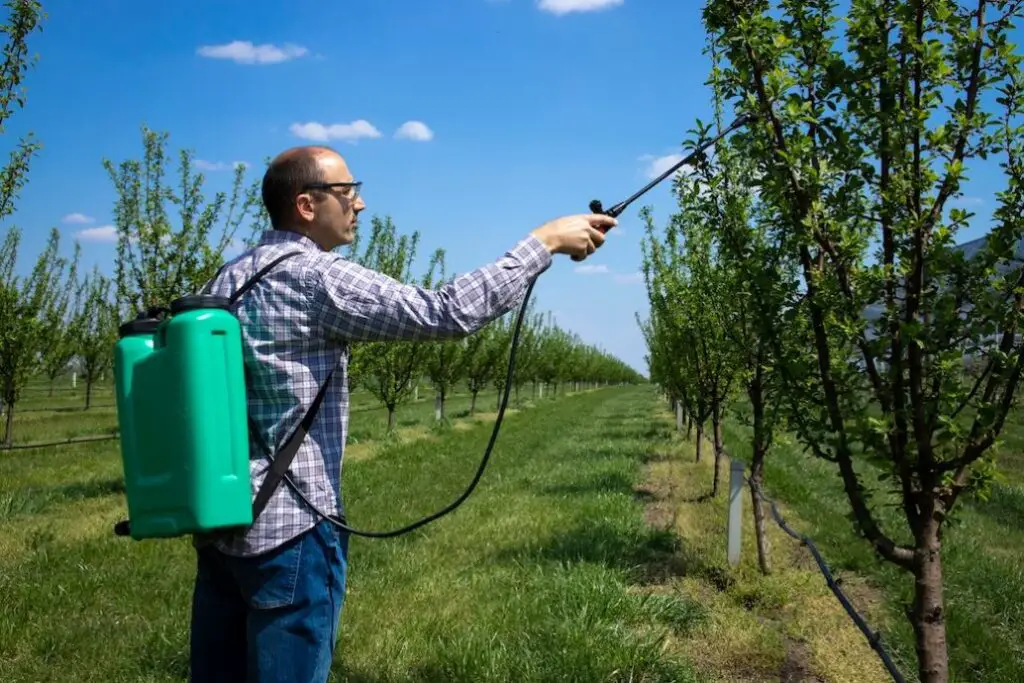
Benefits of Using Neem Oil: Beyond Pest Control
Neem oil offers a multitude of benefits beyond its pest control capabilities. Here are some additional advantages of incorporating neem oil into your gardening routine:
Biodegradability
Neem oil breaks down naturally in the environment, making it an eco-friendly choice that won’t harm the ecosystem.
Nutrient Enhancement
Neem oil can enhance soil quality by promoting beneficial microorganisms, leading to healthier plants.
Fungal Disease Control
In addition to insects, neem oil can help combat fungal diseases like powdery mildew and rust.
Safe for Beneficial Insects
Unlike many chemical pesticides, neem oil is less harmful to beneficial insects like bees and ladybugs, preserving the natural balance in your garden.
Non-Toxic to Humans and Pets
Neem oil is generally safe for humans and pets when used as directed, making it a family-friendly pest control option.
Potential Drawbacks: Understanding Limitations and Potential Issues
While neem oil is a valuable tool in organic gardening, it’s essential to be aware of its limitations and potential drawbacks:
Residual Effects
Neem oil breaks down relatively quickly, which means it may require frequent reapplication, especially in rainy conditions.
Slow Action
Neem oil’s effects may not be immediate, as it works by disrupting insect growth and feeding habits. Patience is key when using neem oil.
Limited Effect on Some Pests
While neem oil is effective against a wide range of pests, it may not work as well on certain hardy insects or severe infestations.
Sensitivity in Some Plants
Certain plant species may be more sensitive to neem oil than others. Always test on a small area before widespread application.
Temperature Sensitivity
Neem oil may solidify or become less effective in cold temperatures. Ensure proper storage and application conditions.
Alternatives to Neem Oil: Exploring Other Natural Pest Control Methods
If neem oil doesn’t suit your gardening needs or you’re looking to diversify your pest control strategy, consider these alternative natural methods:
1. Diatomaceous Earth (DE)
DE is a powdery substance that effectively controls crawling insects like ants and garden pests. It works by damaging the exoskeleton of insects.
2. Beneficial Insects
Introduce natural predators like ladybugs, lacewings, and parasitic wasps to your garden. They can help keep pest populations in check.
3. Companion Planting
Certain plants, when grown alongside others, can deter pests. For example, marigolds can help repel aphids and nematodes.
4. Horticultural Oils
Similar to neem oil, horticultural oils like mineral oil can be used to suffocate and control soft-bodied insects.
5. Homemade Remedies
Explore DIY solutions like garlic and chili pepper sprays, which can be effective against pests when used properly.
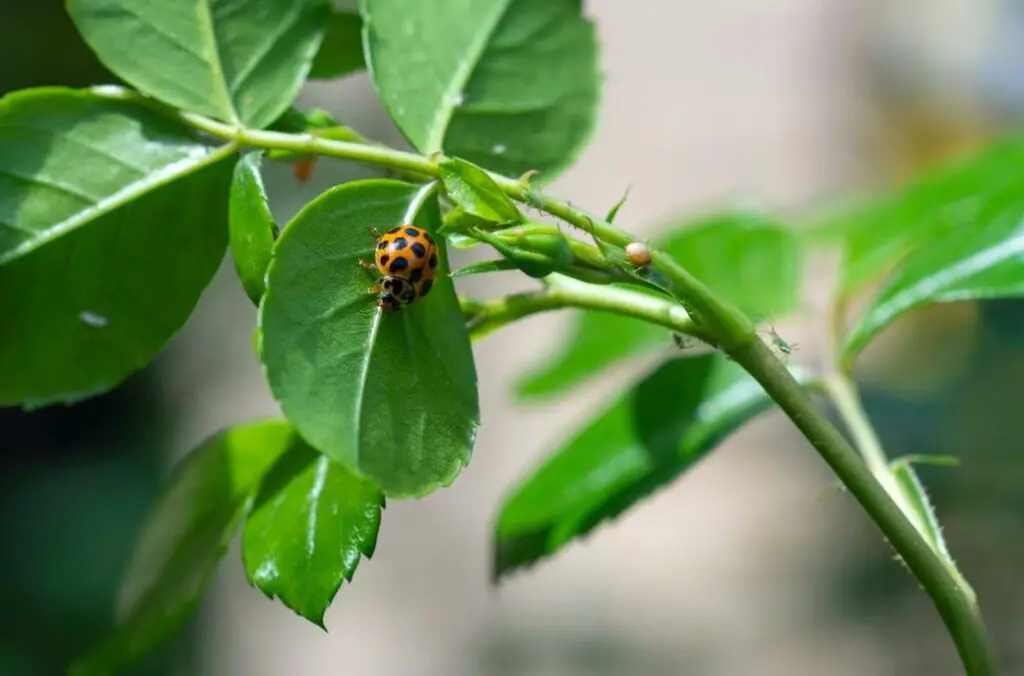
FAQs (Frequently Asked Questions)
How do I use neem oil on houseplants?
Using neem oil on houseplants is a simple process. First, prepare a neem oil solution by mixing it with water and a mild liquid soap. Then, apply the solution to the houseplant’s leaves and soil using a spray bottle or drenching the soil. This helps deter and control pests while nourishing your plants.
What is the proper way to mix neem oil for plants?
To mix neem oil for plants, follow these steps: Measure the desired amount of neem oil, add a few drops of mild liquid soap to it, mix thoroughly, gradually add water, and transfer the solution to a spray bottle. Always follow recommended dilution ratios for effective pest control.
How do I wash off neem oil from my plants?
To wash off neem oil from your plants, gently rinse them with water. Use a gentle stream of water to remove any excess neem oil residue from the leaves. Avoid using high-pressure sprays, as they may damage delicate plants.
Can neem oil kill plants if overused?
While neem oil is generally safe for plants, using excessive amounts can harm them. It’s essential to follow recommended dilution ratios and not overapply neem oil to prevent potential damage to your plants.
How do you use neem oil as a pesticide effectively?
To use neem oil as a pesticide effectively, prepare a neem oil solution, apply it to your plants, and target both the upper and lower leaf surfaces. Apply regularly, especially during the growing season, and follow safety guidelines for optimal results.
Is neem oil dangerous to humans?
Neem oil is generally considered safe for humans when used as directed. However, undiluted neem oil can irritate the skin and eyes. It’s crucial to handle it with care and wear protective gear when applying.
Why is neem oil banned in Canada?
Neem oil-based products for cosmetic use are banned in Canada due to regulatory concerns and the need for additional safety data. However, neem oil for agricultural and pest control purposes remains available in Canada.
Is neem oil safe for all plants?
Neem oil is generally safe for most plants, but some species may be more sensitive to it. Before widespread application, test neem oil on a small area of your plants to ensure they tolerate it well.
Should I rinse neem oil off my plants after application?
Rinsing neem oil off your plants is not necessary. Neem oil is designed to remain on the plant’s surface to deter and control pests effectively. However, avoid applying neem oil in direct sunlight to prevent leaf burn.
Does neem oil kill tomato worms?
Yes, neem oil can be effective against tomato worms, as it disrupts their feeding and growth. Regular application can help protect your tomato plants from these pests.
Can you put too much neem oil on plants?
Applying too much neem oil to plants can potentially harm them. Always follow recommended dilution ratios and application guidelines to avoid overusing neem oil.
Can neem oil damage plants in any way?
While neem oil is generally safe, some plants may be more sensitive to it. Signs of sensitivity can include leaf discoloration or wilting. Test neem oil on a small area before widespread application to ensure your plants tolerate it well.
Is neem oil safe for humans and pets?
Neem oil is generally safe for humans and pets when used according to instructions. However, avoid direct skin contact with undiluted neem oil and keep it out of reach of children and pets.
How often can I spray neem oil on tomato plants?
The frequency of neem oil application on tomato plants depends on the severity of the pest problem and weather conditions. In general, a bi-weekly schedule is a good starting point, with more frequent applications in rainy weather.
Can I eat tomatoes sprayed with neem oil?
Tomatoes sprayed with neem oil are generally safe to eat. However, it’s essential to follow recommended dilution ratios and application guidelines to ensure food safety.
Can you eat vegetables sprayed with neem oil?
Vegetables sprayed with neem oil are safe to eat when the neem oil is applied following recommended guidelines. Thoroughly wash vegetables before consumption.
What can you not use neem oil on?
While neem oil is versatile, there are certain plants and situations where it may not be suitable. Avoid using neem oil on plants that are known to be sensitive to it and consult product labels for specific restrictions.
Harnessing the Power of Neem Oil
In the world of gardening and pest control, neem oil shines as a natural and eco-friendly solution. Its multifaceted approach to pest management, along with numerous other benefits, makes it a valuable tool for both seasoned gardeners and beginners.
As you embark on your journey of using neem oil as a pesticide, remember to prioritize safety, read product labels, and conduct small-scale tests to ensure optimal results. With patience and persistence, neem oil can be your trusted ally in maintaining a healthy and thriving garden.
References
- National Pesticide Information Center – Neem Oil General Fact Sheet
- University of California Statewide Integrated Pest Management Program – Neem Oil
- U.S. Environmental Protection Agency – Azadirachtin, Neem Oil Fact Sheet
- The Connecticut Agricultural Experiment Station – Approaches to the Biological Control of Insect Pests
This comprehensive guide has equipped you with the knowledge and tools to effectively use neem oil as a natural pesticide. We hope your gardening journey is now enriched with this eco-friendly solution that not only protects your plants but also promotes a healthier, sustainable environment. Happy gardening!
